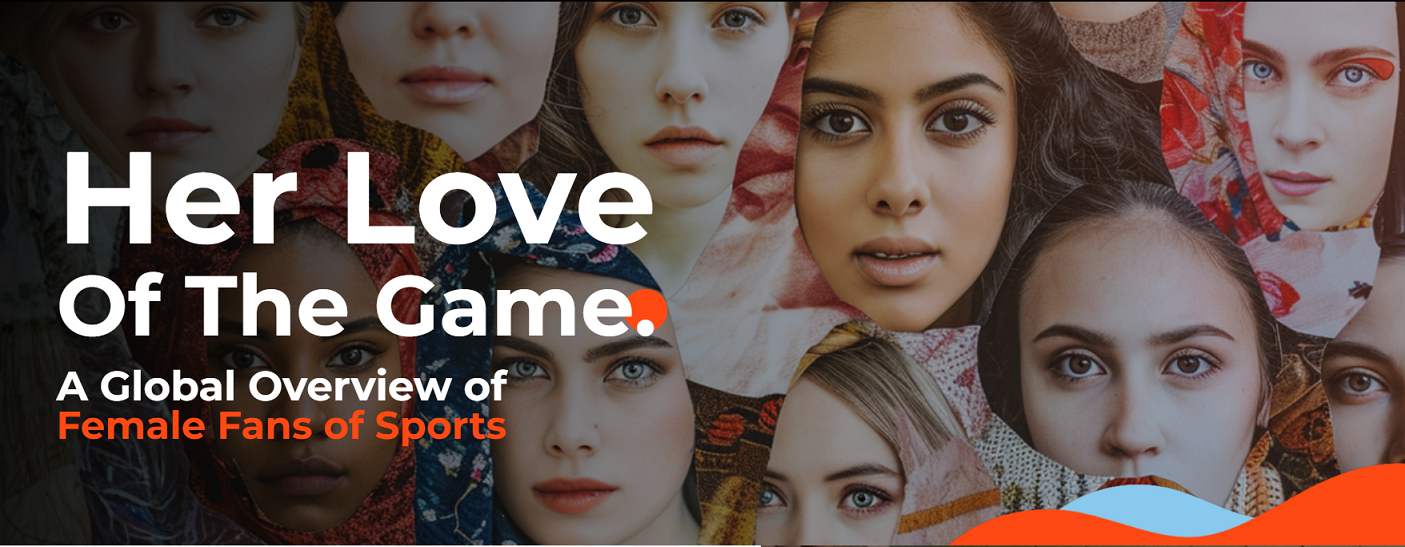According to new data from The Collective®, female sports fans are more receptive to brands that sponsor their favorite sports or teams in several areas: they are more likely than male fans to be aware of new brands; to consider a brand; to engage in content and brand experiences; and to have made purchases from their favorite sports or teams because of sponsors’ involvement.
The Collective® – the industry-leading women’s impact and advisory business of global sports, music and entertainment company Wasserman – released the new research of women sports fans worldwide to help leaders and markets better understand the most crucial dynamics of sports fandom shaping today’s increasingly globalized sports industry.
This research delves into the nuances of female fandom across both men’s and women’s sports, leagues, and events by analyzing data from 30 countries to shed light on key trends, behaviors, and opportunities within this critical target market. The study is the newest installment of a seven-year-old annual, proprietary fan study series and part of a larger Wasserman global fan research initiative. This year’s data comprised 35,000+ respondents across six continents – bearing a sample representative of adult populations aged 16-64 in each country and representing approximately 2 billion global consumers. .
“It has long been known that the shifting economic power of women is driving change in all parts of the economy. But now, our research quantifies the power of female fans and showcases how their behaviors and purchasing decisions can help drive even more growth for leagues, teams, brands and athletes alike,” said Managing Director, The Collective® Thayer Lavielle. “We hope that leaders who understand the power of data for industry change will use those insights to spark conversations and partnerships rooted in the untapped potential of engaging women’s sports fandom. These fans indeed reflect our greatest potential expansion for the ecosystem.”
Key findings include:
Committed Passion: 72% of women globally identify as avid fans of one or more sports; 25% agree that following their favorite sports is one of the most important things in their lives. Given a higher-than-expected percentage of women avidly following sports (a 2021 survey cited that 50% of women in the U.S./Europe and 70% in LatAm/Asia have a deep emotional connection to their favorite teams), brands that authentically engage with women’s sports enthusiasts can unlock significant growth opportunities by aligning with their unique passions, interests and needs.
Women’s Sports Support: Despite a growing male fandom of women’s sports, female sports fans indicate a deeper concern/passion for the investment in and growth of women’s sports: 34% of female sports fans say they’d like to see more brands become involved in women’s sports (vs. 27% of men), and 58% of female sports fans are more likely to think positively of a brand that sponsors women’s sports, compared to 38% of men. Brands targeting this demo should create initiatives that empower female fans to actively engage with and participate in developing women’s sports, such as through community programs, fan advisory boards, and direct investment opportunities. Additionally, 34% of female sports fans expressed a desire for more brand involvement in the space.
Sport Consumption: The number one way female sports fans consume sports is by watching on TV at home with family or friends (44%); 31% of female sports fans indicated that the availability of more content beyond games (e.g. behind-the-scenes highlights, news coverage) would increase their interest in a sport; female sports fans are 9% more likely than male sports fans to have visited experiential spaces (e.g. playing a sport / sports game in venues), with 16% more likely to notice branded experiences/pop-up shops at events. Brands should explore the untapped potential of sports-related gaming for women and ensure they create inclusive, safe environments for women in sports fandoms.
Newly Developed Fandom: While women worldwide are more likely to be relatively newer avid fans of sport (+5pp 1-2 years ago vs -15pp 10+ years ago), they’re also more likely to engage with brand sponsorships of sports teams, leagues and athletes. By strategically engaging this emerging fan base early on, brands can establish strong, long-lasting relationships that not only create enduring loyalty, but also shape future sports consumption trends.
Further, female sports fans’ avid fandom declines with age (avid fandom comprises 78.8% of Gen Z versus 59.6% of Boomers), and 32% of female sports fans (compared to 29% of men) tend to favor brands that demonstrate care for the environment. As of 2024, there are 4 billion women around the world, controlling an estimated $31.8 trillion in worldwide spending, and women will control 75% of discretionary spending in the next four years – almost undoubtedly necessitating shifts in investment from brands and leaders who seek to connect with an evolving fandom.

